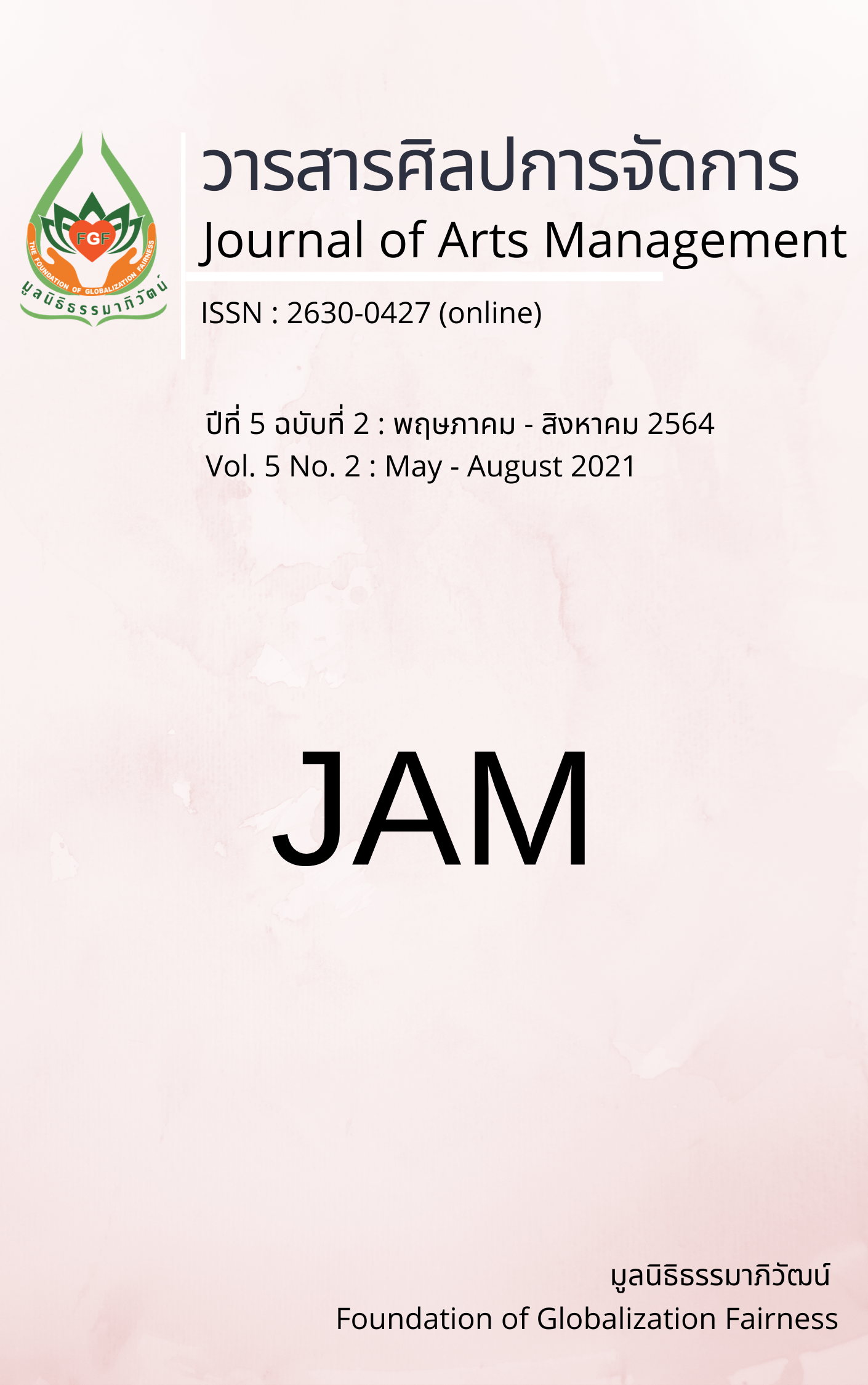The Guidelines for Applying Buddhist Principles in Promoting Well-Being and Learning Among the Elderly at Wai Kaew School, Mahasarakham Province
Main Article Content
Abstract
The objectives of this research were: 1) to study Buddhist principles for promoting well-being and learning of the elderly; 2) to study well-being and learning problems of the elderly at Wai Kaew School, Mahasarakham Province; and 3) to propose guidelines for applying Buddhist principles in promoting well-being and learning of the elderly at Wai Kaew School. This study was carried out by means of the qualitative research. The research results were as follows:
1. There are 4 principles of Buddhism in promoting well-being and learning of the elderly: 1) Kāya-bhāvanā (Physical Development) is to maintain a healthy body and understand the body; 2) Sīla-bhāvanā (Moral Development) is behavior that leads to physical and verbal development; 3) Citta-bhāvanā (Mental Development) is to know the mind that leads to the training of the mind to be peaceful and happy; and 4) Paññā-bhāvanā (Wisdom Development) is to know as the reality resulted from the mental training.
2. Well-being and learning problems of the elderly at Wai Kaew School can be found in 4 areas: 1) Physical aspect such as uneven physical health care, thus causing various pains; 2) psychological aspects, such as family and physical concerns, 3) social aspects, such as socialization difficulty caused by lacking the body and not keeping up with society; and 4) intellectual aspects such as slow memory and forgetfulness.
3. The guidelines for applying the Buddhist Dhamma or the Four Bhāvanā Dhamma for promoting well-being and learning of the elderly at Wai Kaew consisted of 4 items: 1) Kāya-bhāvanā: it is to arrange walking meditation and exercise activities; 2) Sīla-bhāvanā: it is to create activities of observing precepts and creative activities; 3) Citta-bhāvanā: it is to organize the chanting and meditation activities; and 4) Paññā-bhāvanā: to organize the training and learning activities to know and understand the truth of life.
Article Details
Views and opinions appearing in articles in the Journal of Arts of Management It is the responsibility of the author of the article. and does not constitute the view and responsibility of the editorial team I agree that the article is copyright of the Arts and Management Journal.
References
กรมกิจการผู้สูงอายุ กระทรวงการพัฒนาสังคมและความมั่นคงของมนุษย์. (2560). ยุทธศาสตร์กรมกิจการผู้สูงอายุ 20 ปี พ.ศ. 2561-2580. กรุงเทพฯ: โรงพิมพ์สามลดา.
กรมพัฒนาสังคมและสวัสดิการส่วนมาตรฐานการจัดบริการสวัสดิการ สังคมสำนักบริการสวัสดิการสังคม. (2548). การศึกษาโครงสร้างและรูปแบบศูนย์พัฒนาการจัดสวัสดิการสังคมผู้สูงอายุ. กรุงเทพฯ: บพิธการพิมพ์.
กระทรวงการพัฒนาสังคมและความมั่นคงของมนุษย์. (2544). พระราชบัญญัติผู้สูงอายุ พ.ศ. 2564. (พิมพ์ครั้งที่ 8). กรุงเทพฯ: ชุมชุมสหกรณ์การเกษตรแห่งประเทศไทย.
กิตติคุณ ด้วงสงค์ และคณะ. (2562). รูปแบบการจัดกิจกรรมเสริมสร้างสุขภาวะของผู้สูงอายุในจังหวัดสุรินทร์(รายงานการวิจัย). มหาวิทยาลัยมหาจุฬาลงกรณราชวิทยาลัย.
คณะโรงเรียนวัยแก้ว. (2561). ครบรอบ 1 ปีโรงเรียนวัยแก้ว. มหาสารคาม: คณะโรงเรียนวัยแก้ว.
จักรแก้ว นามเมือง. (2560). โรงเรียนผู้สูงอายุ : ต้นแบบการจัดการสุขภาวะและสวัสดิการผู้สูงอายุ(รายงานการวิจัย). มหาวิทยาลัยมหาจุฬาลงกรณราชวิทยาลัย.
บุญเลิศ เลียวประไพ. (2557). ประชากรไทย-อดีต-ปัจจุบัน-อนาคต. กรุงเทพฯ: มหาวิทยาลัยมหิดล.
พระมหาเชาวฤทธิ์ ทรัพย์สวัสดิ์ นรินฺโท. (2562). การศึกษาแนวทางการพัฒนาคุณภาพชีวิตผู้สูงอายุตามหลักภาวนา 4 กรณีศึกษา: ผู้สูงอายุบ้านห้วยหอย ตำบลธาตุทอง อำเภอภูเขียว จังหวัดชัยภูมิ(วิทยานิพนธ์พุทธศาสตรดุษฎีบัณฑิต). มหาวิทยาลัยมหาจุฬาลงกรณราชวิทยาลัย.
ภาณุ อดกลั้น. (2563). ทฤษฎีผู้สูงอายุ. สืบค้นเมื่อ 9 พฤศจิกายน 2563, จาก http://www.bcnu.ac.th/newbcnu/attachments/WorksTeacher/Panu/20panu.pdf.
มหาจุฬาลงกรณราชวิทยาลัย. (2539). พระไตรปิฎกภาษาไทย ฉบับมหาจุฬาลงกรณราชวิทยาลัย. กรุงเทพฯ: โรงพิมพ์มหาจุฬาลงกรณราชวิทยาลัย.
มูลนิธิสถาบันวิจัยและพัฒนาผู้สูงอายุไทย. (2551). รายงานสถานการณ์ผู้สูงอายุไทย ประจำปี 2550. กรุงเทพฯ: กระทรวงการพัฒนาสังคมและความมั่นคงของมนุษย์.
รศรินทร์ เกรย์, อมรรัษฎ์ บุนนาค และ เรวดี สุวรรณนพเก้า. (2551). พัฒนาการการจัดทำทะเบียนราษฎรและสำมะโนประชากรในประเทศไทย(รายงานการวิจัย). มหาวิทยาลัยมหิดล.
สำนักงานเลขานุการวุฒิสภา. (2561). รัฐธรรมนูญแห่งราชอาณาจักรไทย พ.ศ. 2561. กรุงเทพฯ: สำนักงานเลขานุการวุฒิสภา.
United Nations. (2010). World Population Prospects: The 2008 Revision, Volume 1: Comprehensive Tables. New York: United Nations.


